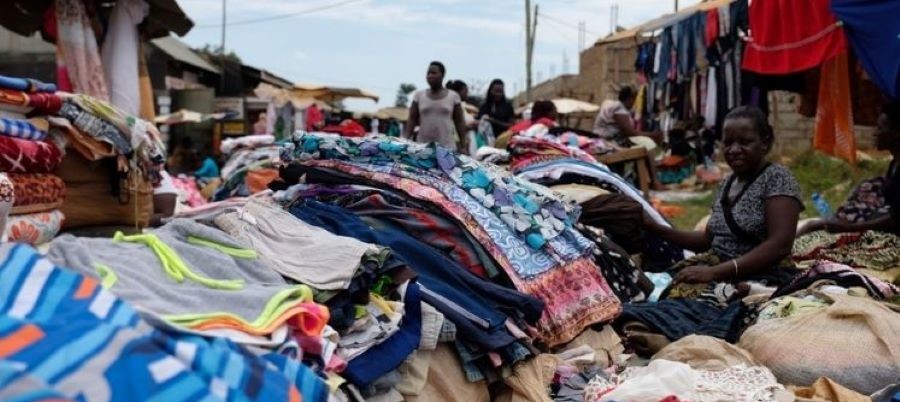(3 minutes read)
President Yoweri Museveni recently declared a ban on second-hand clothing primarily imported from the United States and Europe. To overcome the likely shortage, he said, he would promote African clothing
A possible ban on the importation of used clothes by authorities could jeopardize the livelihoods of several people in Uganda. President Yoweri Museveni recently declared a ban on second-hand clothing primarily imported from the United States and Europe. To overcome the likely shortage, he said, he would promote African clothing.
Owino Market, a sprawling market established in 1971, engages around 80,000 people, with 70% being women. A sizable number of them are involved in selling second-hand clothes. Some traders claim that their clients include ministers and parliamentarians, alluding that everyone is a stakeholder in the trade and the ban will affect all of them.
According to estimates from the Ugandan Association of Resellers of Second-hand Clothes and Shoes, about 16 million people, or one in three Ugandans, buy second-hand clothes. People who are in the know of things also cite the environmental cost of new clothing production.
According to USAID, East Africa imports over 12% of the world’s exported second-hand clothes, creating jobs for around 355,000 people who earn US$230 million annually. The importation of second-hand clothes is often criticized by governments on the African continent, denouncing its negative impact on the local textile industry.
This is not the first time authorities have proposed this ban. In 2016, President Museveni, who has ruled the country with an iron fist since 1986, had previously attempted to ban imported second-hand clothes as part of a regional initiative. Still, it faced strong opposition from the Kampala Traders Association.
It also faced diplomatic pressures. Initially united, the East African Community regional bloc fractured after Kenya, Tanzania, and Uganda hesitated due to the prospect of American retaliation. Only Rwanda went ahead with the initiative, imposing taxes in 2016 on second-hand clothes, leading to a decrease in imports. In retaliation, the United States suspended trade benefits for Kigali.
Read Also:
https://trendsnafrica.com/us-further-tightens-visa-rules-for-ugandans/
In the alleys of Owino Market, traders fear losing their only means of livelihood in a country where 30% of the population lives below the poverty line, according to the World Bank.





